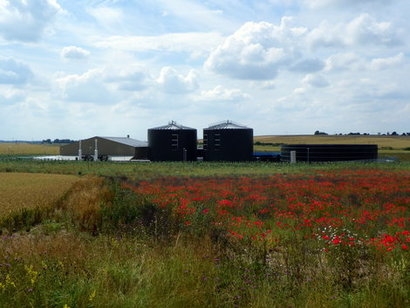
Anaerobic digestion (AD) in the UK has benefited from a range of renewable energy subsidies, with particular growth in farm-fed facilities as a result of Feed-in-Tariff and Renewable Heat Incentive payments. However, these subsidies have limited life-spans, and some sewage sludge digesters are due to fall out of the Renewables Obligation scheme within the next five years. At the same time, the Renewable Heat Incentive is due to close to new entrants in 2020. While the wastewater sector is looking to understand whether its assets can continue to be operated without negative financial impact beyond ROCs, the waste and farming sectors are still looking to build new AD facilities beyond FiT and RHI.
Within this context, Aqua Enviro have invited industry experts to provide their views on a subsidy-free future for UK AD. Will innovation deliver significant improvements in biogas production or reductions in operational footprint? Or will there be greater returns in using digester assets to deliver alternative fermentations – perhaps as the basis for a carboxylate platform?
Key themes that will be explore include:
How do current business models compare between the waste, farm and wastewater sectors?Will Ofwat’s deregulation of the sludge market deliver a positive or negative impact on AD finances?Will innovations in microbiology and AD process management ever deliver 100 percent of potential biogas from feedstocks? Could non-biomethane end points deliver more value from current or future AD assets?
Speakers include:
Richard Barker, Advisor and Investment Committee Member, Iona CapitalDr. Thom Koller, Senior Policy Manager, ADBADr. David Vaughan, Senior Technologist, Biorenewables Development CentreMark Batt-Rawden, Vice President Remediation Systems, Global Advantech Resources LtdMauro Lafretta, Doctoral Practitioner, Sludge & Energy, Thames Water UtilitiesRichard Gueterbock, Clearfleau Group Ltd
View the draft programme
For additional information:

